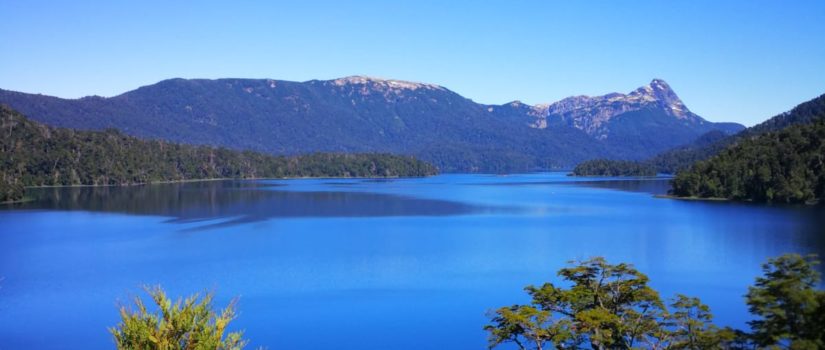Rabbi Jamie’s Corner
February 2023
Tu b’Shvat, the 15th day of the Hebrew month of Shvat, is also known as the birthday of the fruit trees. Falling on February 5-6 this year, it is considered a minor festival, but for environmentalists, Tu b’Shvat is an ancient Jewish connection to contemporary ecological issues.
If you have driven up to Tahoe lately, you’ve seen that the trees don’t look so healthy. The drought has taken its toll, the trees are suffering, and we have played a role in bringing this about. The ways that we live on this planet are clearly having an effect on the natural world. What can we learn from Jewish teachings about our relationship to the environment?
The Torah presents two different models for how we are to be in relationship with the environment. In the first, we as humans are given dominion over the earth. “They shall rule the fish of the sea, the birds of the sky, the cattle, the whole earth, and all the creeping things that creep on earth” (Genesis 1:26-28). In the second, Adam and Eve are placed in the Garden of Eden to “tend and till” (Genesis 2:15). The first approach is about control, and a “do with the land as you will” mentality, with humans at the top of the heap of fish, animals, and the earth. The second presents a nurturing and caring relationship to the planet, with humans as stewards of something precious.
What is the Torah trying to teach us with these seemingly incongruent messages? We are not being asked to pick one or the other, rather to consider both. While we may have the power to “have dominion over the earth,” we must choose to “tend and till” the garden, this precious planet of ours. As we use our natural resources, it is our responsibility to consider the consequences of our actions.
Nurturing and caring about the well-being of our community and thus, by extension, the environment, is the mission of Hebrew Free Loan. In considering how to tend and till our world, Hebrew Free Loan has long aimed to create a new loan program to move us towards a cleaner environment. While we’re still waiting for funding to create a dedicated environmental loan program, we currently provide a limited number of loans to people interested in “going green.” Loans can help with upgrades to improve the energy efficiency of homes, such as solar panels, energy-efficient appliances, double-paned windows, etc. They can also fund transportation needs, such as the purchase of hybrid or electric vehicles or installing vehicle charging stations in homes.
The recent weather has reinforced how precarious our situation is when it comes to the environment. We have been naïve and arrogant in exercising our “dominion over the earth,” using the resources of the planet for short-term gain and profit, losing sight of the long-term consequences for ourselves and for future generations.
We have poured cleaning and pest control products — so harmful to our hands that we wear gloves when we use them — down our drains and spread them on our lawns. Our chemicals have damaged the ozone layer of the planet, and we have built sprawling suburban communities far from where we work, which necessitate long commutes, often in cars powered by polluting fossil fuels. These and other human actions have contributed to changes in our climate. Climate change has brought unusually fierce weather, with torrential rain causing flooding in unexpected places. One recent storm brought road closures and submerged vehicles three blocks from my suburban home. I do not live next to a river or stream, but the volume of water was more than our human drainage systems could handle.
I had the opportunity to travel to Argentina recently, and we spent several days near Bariloche, Patagonia, which is a region filled with remote lakes. The water was so clear and clean you could see fish swimming several meters down, and away from the city it was quiet and still, the night sky filled with stars. Where I live in the Bay Area, it is never fully dark or quiet. The city light obliterates the stars, the freeway noise is always in the background, and I would never drink the water flowing through the creeks in the hills nearby. We forget what a pristine environment feels like, what it smells like, how it sounds. Click here to experience the beauty and peace of the pristine Patagonian environment.
Tu b’Shvat reminds us that while we may have the power to “have dominion over the earth,” it is our responsibility to “tend and till” the garden. A wise person once said, “If you are not part of the solution, you must be part of the problem.” Hebrew Free Loan wants to be part of the solution to save our planet by creating a Clean Environment Loan Program. Tending the garden is an awesome responsibility, and we all have a role to play.
Happy birthday to the trees! Yom huledet sameach! May you grow tall and strong, providing us with oxygen to breathe and shade to protect us from the sun.
Rabbi Jamie
P.S. New loan programs require a $150,000 donation to get started. If you or a group of people are interested in making a lasting impact by helping us to launch our Clean Environment Loan Program, please give me a call at (628) 231-2911.
Rabbi Jamie Hyams, our Development Director, received her rabbinic ordination in 2021 from the Academy for Jewish Religion | CA. We’ve asked Rabbi Jamie to occasionally share her perspective with our community. Jamie can be reached for questions, comments, or further dialogue at jamie@hflasf.org.

